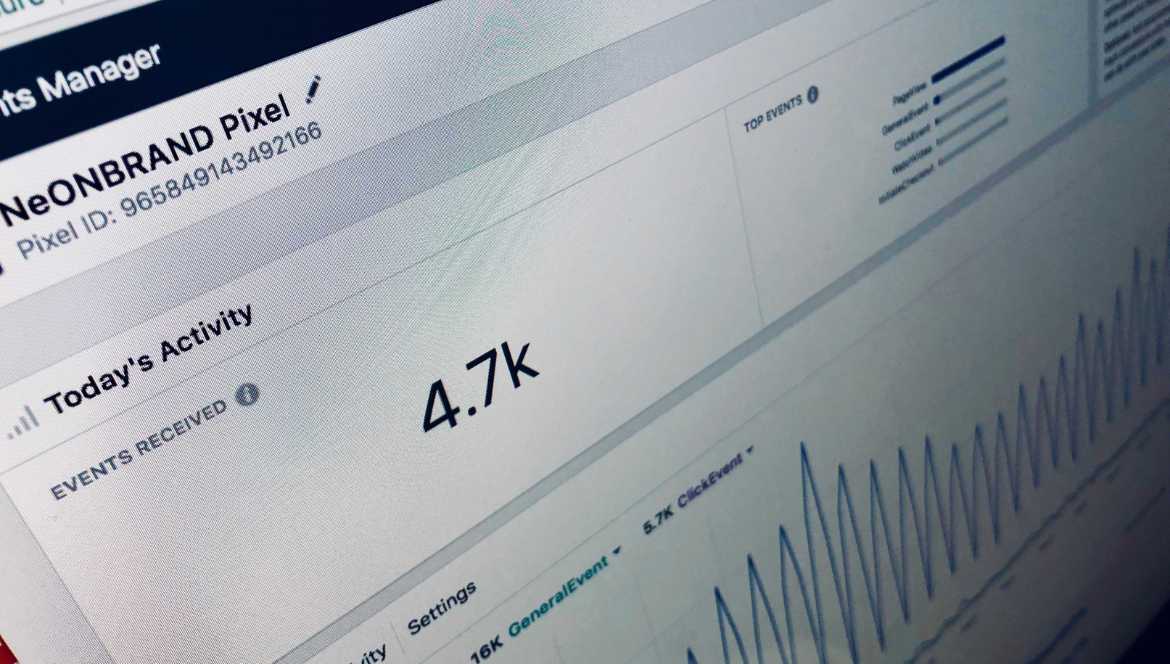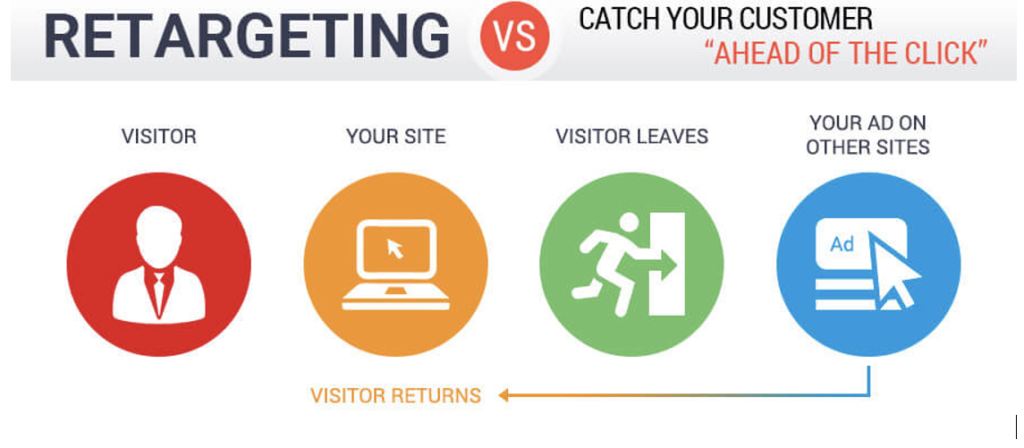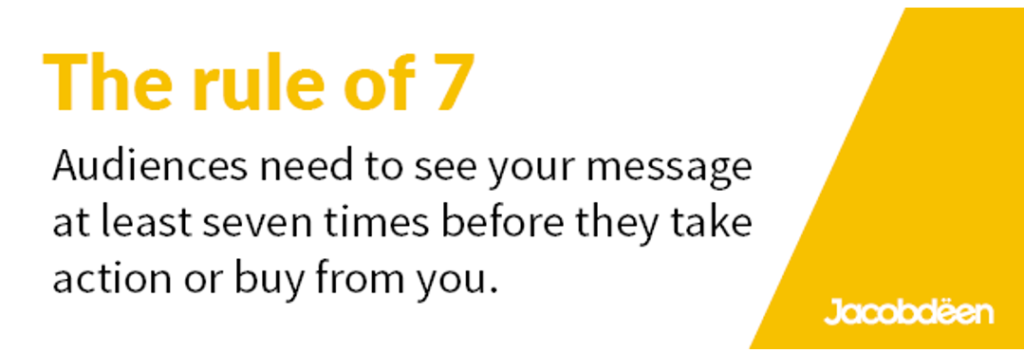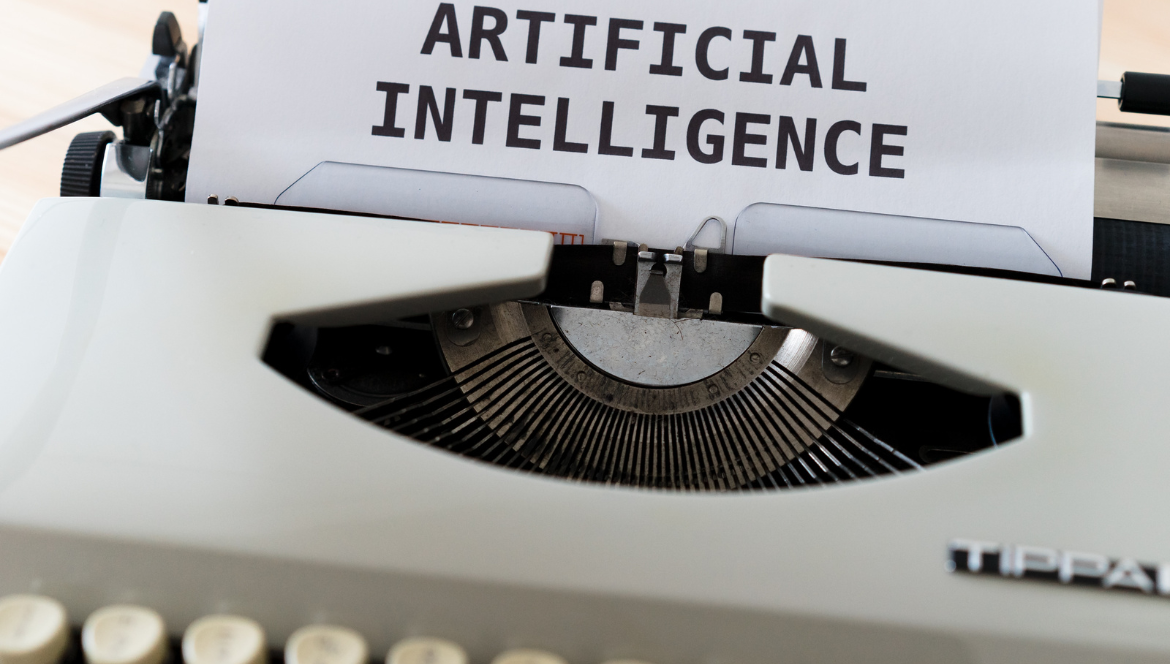AI-Driven SEO – Maximizing Website Performance and Ranking Potential
In the ever-evolving world of digital marketing, staying ahead of the competition is essential. And one of the key strategies for success is mastering search engine optimization (SEO). But with the rise of artificial intelligence (AI), traditional SEO practices are being revolutionized. AI-driven SEO tools are now available to help businesses maximize their website’s performance and ranking potential.
In this blog post, we will explore the benefits of AI-driven SEO and how it can take your digital presence to new heights. From keyword research to content optimization, AI is changing the game and helping businesses stay ahead in the ever-competitive online landscape. Get ready to unlock the power of AI-driven SEO and take your website to new heights in search engine rankings.


What is AI-driven SEO?
AI-driven SEO refers to the use of artificial intelligence (AI) technologies to improve website performance and ranking potential in search engine results pages (SERPs). It involves utilizing machine learning algorithms and AI-powered tools to optimize various aspects of SEO, including keyword research and analysis, content creation, backlink analysis, user experience, website performance, and data tracking.
AI-driven SEO is essential in today’s competitive digital landscape, as it enables businesses to enhance their online visibility and attract a larger audience. By leveraging AI technologies, website owners can gain valuable insights into user behavior, search trends, and competition, allowing them to make data-driven decisions and implement effective SEO strategies.
AI-powered tools for keyword research and analysis help identify relevant keywords with high search volume and low competition, enabling website owners to optimize their content for better visibility. AI tools also analyze and optimize website content, ensuring that it is relevant, engaging, and SEO-friendly.
With AI-driven SEO, businesses can automate and streamline their link building process, identify backlink opportunities, and enhance the user experience, resulting in improved website performance, reduced bounce rates, and higher search engine rankings. AI tools can analyze website data, track performance, and generate SEO reports and insights, providing valuable information for ongoing optimization efforts.
While AI-driven SEO offers numerous benefits, it is essential to consider ethical considerations and potential limitations. Human oversight and careful interpretation of AI-generated data are crucial to ensuring unbiased and accurate optimization. Additionally, relying solely on AI may neglect the importance of user intent and human creativity in creating engaging and valuable content.
AI-driven SEO has become a powerful tool for maximizing website performance and ranking potential. By harnessing the capabilities of AI technologies, businesses can stay ahead in the highly competitive digital landscape and achieve long-term success.
AI-driven SEO has become a powerful tool for maximizing website performance and ranking potential.
Importance of AI-driven SEO in website performance and ranking
AI-driven SEO plays a crucial role in optimizing website performance and improving ranking potential. Here are some reasons why AI-driven SEO is important:
- Improved Keyword Research: AI-powered tools can analyze large volumes of data to identify high-performing keywords and uncover hidden opportunities for optimization.
- Enhanced Content Optimization: AI can analyze website content and provide insights on how to optimize it for search engines. This includes suggestions for improving readability, meta tags, and keyword density.
- Automated Link Building: AI tools can identify relevant websites for link building campaigns, streamline the outreach process, and optimize anchor text to maximize the impact of backlinks.
- Enhanced User Experience: AI-driven SEO strategies can help improve website performance, load times, and the overall user experience. This can result in lower bounce rates and higher user engagement.
- Data Analysis and Performance Tracking: AI tools can analyze website data, track SEO performance, and provide actionable insights for continuous optimization.
While AI-driven SEO offers numerous benefits, it’s important to note that it’s not a substitute for human expertise. Ethical considerations should also be taken into account when using AI in SEO practices. Overall, incorporating AI-driven SEO strategies can significantly improve website performance and increase organic traffic, leading to better rankings and increased visibility in search engines.
Understanding machine learning and its impact on SEO
Understanding machine learning and its impact on SEO is crucial in today’s digital landscape. Machine learning is a subset of artificial intelligence that focuses on automatically learning patterns and making predictions from data. In the context of SEO, machine learning algorithms analyze vast amounts of data to identify patterns and trends that can improve website performance and ranking.
The impact of machine learning on SEO includes:
- Improved search results: Machine learning algorithms help search engines understand user intent and provide more relevant search results.
- Personalized search: Machine learning enables search engines to deliver personalized search results based on a user’s past behavior and preferences.
- Content optimization: Machine learning algorithms can analyze content to identify keywords, understand the context, and suggest improvements to optimize for search engines.
- Automatic keyword research: Machine learning tools can generate keyword suggestions and analyze their performance to identify the most effective keywords for SEO.
- Link analysis: Machine learning algorithms can analyze backlinks to identify high-quality links and potential opportunities for link building.
- User experience: Machine learning can analyze user behavior metrics, such as bounce rates and time on page, to improve website design and user experience.
- Data analysis: Machine learning tools can analyze website data and track performance metrics to provide actionable insights for SEO strategies.
By leveraging machine learning in SEO, businesses can gain a competitive edge, improve website performance, and increase organic traffic.
AI-powered tools for keyword research and analysis
Keyword research and analysis are crucial aspects of search engine optimization (SEO), and AI-powered tools have revolutionized this process, providing valuable insights and data-driven recommendations. These tools leverage machine learning algorithms to analyze large volumes of data and identify relevant keywords with high search volumes and low competition. Here are some popular AI-powered tools for keyword research and analysis:
- Google Keyword Planner: This free tool by Google allows users to discover new keywords, get keyword ideas, and find search volume trends for a specific keyword.
- Moz Keyword Explorer: It provides comprehensive keyword research with metrics like search volume, keyword difficulty, and opportunity score.
- Ahrefs Keywords Explorer: It offers deep analysis of keywords, search volumes, and keyword difficulty and provides useful insights into competitor strategies.
- SEMrush: This versatile SEO tool offers a keyword research feature that helps identify relevant keywords, estimate their search volume, and analyze keyword difficulty.
Using AI to analyze and optimize website content
One of the key aspects of SEO is optimizing website content to improve search engine rankings. AI-driven tools can play a crucial role in analyzing and optimizing website content for maximum performance. These tools utilize natural language processing (NLP) algorithms to understand the context and relevance of the content, ensuring it aligns with search engine requirements. Here’s how AI can assist in this process:
- Content analysis: AI tools can analyze large volumes of content and identify areas for improvement. This includes checking for proper keyword usage, identifying potential duplicate content or thin content, and providing suggestions for optimizing headings, meta tags, and other on-page elements.
- Content generation: AI-powered content generation tools can assist in creating relevant, engaging, and SEO-friendly content. These tools can generate blog posts, articles, product descriptions, and other types of content based on specific keywords or topics.
- Content optimization: AI algorithms can provide recommendations for improving the overall quality of the content. This includes suggesting changes to sentence structure, improving readability, and ensuring the content aligns with best SEO practices.
- Content personalization: AI can help tailor website content to individual users based on their browsing behavior, preferences, and demographics. This personalization can enhance the user experience and increase engagement, ultimately improving SEO performance.
By leveraging AI-driven tools for content analysis and optimization, businesses can make sure their website content is not only relevant and engaging but also optimized for search engines, ultimately boosting their search rankings and increasing organic traffic.
AI tools for generating SEO-friendly content
AI-driven tools have revolutionized the way content is created for websites, enabling businesses to generate SEO-friendly content efficiently and effectively. These tools utilize natural language processing and machine learning algorithms to produce high-quality content that is optimized for search engines. Some popular AI tools for generating SEO-friendly content include:
- Concured: This tool uses AI to analyze user behavior, identify trending topics, and generate content recommendations. It helps businesses create engaging and relevant content that resonates with their target audience.
- MarketMuse: MarketMuse uses AI to analyze existing content on a website and identify gaps or areas for improvement. It provides content briefs and suggestions to optimize existing content and generate new content that aligns with SEO best practices.
- Frase: Frase uses AI to analyze search intent, competitor content, and relevant keywords. It then generates detailed outlines for content creation, ensuring that the final product is well-structured and optimized for search engines.
- WordLift: WordLift utilizes AI to automatically tag and categorize content, improving its visibility in search results. It also generates rich snippets and structured data, enhancing the website’s overall SEO performance.
These AI-powered tools not only help businesses save time and resources but also ensure that they are creating content that is optimized for search engines and resonates with their target audience. By leveraging these tools, businesses can improve their website’s performance and increase their ranking potential in search engine results.
AI-powered tools for analyzing backlinks and identifying opportunities
Analyzing backlinks and identifying opportunities
AI-powered tools have revolutionized the process of analyzing backlinks and identifying opportunities for improving website performance and ranking. These tools leverage machine learning algorithms to provide valuable insights and recommendations for optimizing a website’s backlink profile.
Here are some key features of AI-powered tools for analyzing backlinks:
- Link quality analysis: These tools use AI algorithms to assess the quality of backlinks based on factors such as relevance, authority, and trustworthiness. They can identify low-quality or spammy links that may be harming your website’s ranking.
- Competitor analysis: AI-powered tools can analyze the backlink profiles of your competitors, providing insights into their link-building strategies and identifying potential opportunities for acquiring high-quality backlinks.
- Link gap analysis: These tools can compare your website’s backlink profile with that of your competitors, highlighting areas where you are lacking in terms of high-quality backlinks. This information can help you prioritize your link-building efforts.
- Link prospecting: AI algorithms can crawl the web and identify potential websites and blogs that are relevant to your industry and have a high likelihood of linking to your content. This saves time and effort on manual prospecting.
- Recommendations for link building: AI-powered tools can provide recommendations for link-building strategies based on your website’s specific goals and industry. This can include suggestions for guest posting, influencer outreach, and content promotion.
By leveraging AI-powered tools for analyzing backlinks and identifying opportunities, website owners and SEO professionals can make informed decisions that will positively impact their website’s performance and ranking.
Automating and streamlining the link-building process
Automating and streamlining the link-building process is one of the key benefits of AI-driven SEO. Link building plays a crucial role in improving website rankings and attracting organic traffic. However, it can be a time-consuming and complex task that requires careful planning and execution. AI-powered tools can simplify and automate this process, saving time and resources for SEO professionals.
These tools can analyze a website’s link profile, identify broken or low-quality links, and suggest opportunities for acquiring high-quality backlinks from authoritative websites. AI can also optimize anchor text distribution and monitor competitor backlink strategies to stay ahead in the SEO game. By automating the link building process, businesses can focus on other important SEO tasks and improve their website’s visibility and authority in search engine rankings.
Here are some benefits of automating and streamlining the link-building process:
- Efficient and faster linkage between prospecting and outreach
- Higher success rate in acquiring quality backlinks
- Improved anchor text optimization
- Detailed analysis of competitor backlink profiles
- Time and resource savings for SEO professionals
By leveraging AI-powered tools for link building, businesses can enhance their SEO efforts and achieve better website performance and ranking.
Enhancing the user experience with AI-driven SEO strategies
Enhancing the user experience is a crucial aspect of SEO, and AI-driven strategies can play a significant role in achieving this goal. Here are some ways in which AI can be utilized to enhance the user experience:
- Personalized recommendations:AI algorithms can analyze user behavior, preferences, and browsing patterns to provide personalized recommendations for content, products, or services. This helps users find relevant information quickly, increasing user satisfaction and engagement.
- Chatbots and virtual assistants: AI-powered chatbots and virtual assistants can provide instant and personalized assistance to website visitors. They can help answer queries, provide customer support, and guide users through the website, improving the overall user experience.
- Voice search optimization:With the rise of smart speakers and voice assistants, optimizing websites for voice search has become crucial. AI-powered tools can analyze voice search queries and help websites optimize their content to rank higher in voice search results.
- Sentiment analysis:AI algorithms can analyze user feedback, comments, and reviews to understand user sentiment. This information can be used to improve products, services, or website content to align with user expectations.
- A/B testing and conversion optimization: AI algorithms can automatically run A/B tests on different website elements, such as layouts, colors, or call-to-action buttons, to identify the most effective options for improving conversions and the user experience.
By implementing AI-driven SEO strategies, businesses can create a more personalized and engaging experience for their website visitors, leading to increased user satisfaction, longer dwell times, and higher conversions.
Improving website performance and reducing bounce rates with AI
Improving website performance and reducing bounce rates are essential goals for any business looking to maximize its online presence. With AI-driven SEO strategies, businesses can achieve these goals more effectively. AI can analyze user behavior, gather data, and provide valuable insights to optimize website performance.
By leveraging AI, businesses can:
- Personalize user experiences by analyzing user data and delivering customized content based on individual preferences.
- Optimize website speed and performance by identifying and resolving performance issues that contribute to high bounce rates.
- Improve website navigation and the user interface by analyzing user interactions and making design improvements accordingly.
- Enhance mobile responsiveness to cater to the growing number of mobile users.
- Implement chatbots or virtual assistants to provide immediate assistance and improve user engagement.
Additionally, AI can help identify patterns and trends in user behavior, allowing businesses to tailor their content and marketing strategies accordingly. By continuously analyzing data and making real-time adjustments, websites can offer a seamless user experience, keeping visitors engaged and reducing bounce rates.
AI-driven SEO can significantly improve website performance and reduce bounce rates by personalizing user experiences, optimizing website speed and performance, improving navigation and user interface, enhancing mobile responsiveness, and implementing chatbots or virtual assistants.
Using AI to analyze website data and track performance
Using AI to analyze website data and track performance is becoming increasingly important in the world of SEO. AI-powered analytics tools can provide valuable insights into various aspects of a website’s performance, including user behavior, traffic sources, conversion rates, and more. These tools use advanced algorithms to analyze vast amounts of data and generate actionable reports and insights. By leveraging AI in this way, businesses can:
- Identify trends and patterns: AI can identify patterns and trends in user behavior, such as frequent search queries, popular pages, and conversion paths. This information can help businesses optimize their websites and marketing strategies to better meet the needs of their target audience.
- Track SEO performance: AI can track key SEO metrics such as keyword rankings, organic traffic, and backlink profiles. This data allows businesses to monitor the effectiveness of their SEO efforts and make necessary adjustments to improve their search engine rankings.
- Predictive analysis: AI can also use historical data to predict future trends and behaviors. By leveraging predictive analytics, businesses can proactively optimize their website and content to align with changing user preferences and search engine algorithms.
- Real-time monitoring: AI-powered tools can provide real-time monitoring and alerts, allowing businesses to quickly identify and address any issues that may arise, such as sudden drops in traffic or performance issues.
In summary, using AI to analyze website data and track performance can provide valuable insights and help businesses optimize their SEO strategies for better website performance and higher search engine rankings.
AI tools for generating SEO reports and insights
AI-powered tools have revolutionized the way we analyze and understand SEO data, allowing us to generate comprehensive reports and valuable insights. These tools leverage machine learning algorithms to analyze vast amounts of data and provide actionable recommendations for optimizing website performance and improving search engine rankings.
Here are some popular AI tools for generating SEO reports and insights:
- Moz: Moz offers a suite of SEO tools, including their AI-powered toolset, that provides detailed reports on website performance, keyword rankings, backlink analysis, and more. Their machine learning algorithms analyze data from various sources to provide insights into website visibility and competitiveness.
- SEMrush: SEMrush’s AI-driven tools offer in-depth SEO audits, competitor analysis, and keyword research. They provide comprehensive reports and recommendations to improve website visibility and performance.
- Ahrefs: Ahrefs’ AI algorithms analyze backlink profiles, competitive analysis, and keyword rankings to generate detailed reports. Their tools provide insights into website performance and help identify opportunities for improvement.
- Google Analytics: While not specifically an AI tool, Google Analytics utilizes AI technology to analyze website data, track user behavior, and provide detailed reports on website performance. It offers valuable insights into user engagement, traffic sources, and conversion rates.
These AI-powered tools not only save time and effort in generating reports but also provide valuable insights that can drive actionable SEO strategies and improve website performance.
Ethical considerations in AI-powered SEO
As AI becomes increasingly integrated into SEO strategies, it is important to address the ethical implications that arise. Here are some key considerations:
- Data privacy and security: AI-driven SEO relies on collecting and analyzing large amounts of user data. It is crucial to handle this data responsibly, ensuring compliance with privacy regulations and protecting user information from unauthorized access.
- Transparency: AI algorithms should be transparent, and website owners should clearly communicate the use of AI tools to visitors. Users should be aware of how their data is being collected and utilized.
- Unbiased decision-making: AI algorithms should be designed to avoid bias and discrimination. Training data should be diverse and representative to prevent algorithmic bias that may negatively impact certain groups or individuals.
- Responsible automation: While AI can automate many SEO tasks, it is essential to maintain human oversight to ensure ethical decision-making. This includes monitoring AI-generated content and preventing the spread of misinformation.
- Accountability: Companies utilizing AI-powered SEO should be accountable for the actions and consequences of their algorithms. This involves regularly auditing AI processes and addressing any potential biases or ethical concerns that arise.
By considering these ethical aspects, businesses can ensure that AI-powered SEO strategies are implemented responsibly and ethically, maximizing website performance while respecting user rights and privacy.
Potential limitations and risks of relying solely on AI in SEO
While AI-driven SEO offers numerous benefits for optimizing website performance and ranking potential, it’s important to recognize its limitations and potential risks. Here are some points to consider:
- Lack of Human Touch: AI algorithms may not fully understand the nuances of human language and context, leading to potential inaccuracies in interpreting search intent and keywords.
- Overreliance on Data: Relying solely on AI-generated data can lead to a narrow focus on popular keywords, overlooking long-tail keywords or emerging trends that can drive targeted traffic.
- Algorithm Changes: Search engine algorithms are constantly evolving, and relying solely on AI may result in strategies that become outdated or ineffective when algorithms change.
- Ethical Concerns: AI-driven SEO tools may scrape or collect data in ways that violate privacy or ethical guidelines. It’s important to ensure compliance with data protection regulations.
- User Experience: While AI can analyze user data and make recommendations, it may not fully understand the user experience. Human insights and feedback are still crucial for optimizing website usability and user satisfaction.
To mitigate these risks, it’s recommended to combine AI-driven insights with human expertise. Regular monitoring, manual review, and ongoing optimization are necessary to ensure the best results.
The Future of AI-Driven SEO
The future of AI-driven SEO holds immense potential for improving website performance, increasing ranking potential, and enhancing the user experience. As technology continues to advance, we can expect several trends to shape the future of AI-driven SEO:
- Voice search optimization: With the rise of voice assistants like Alexa and Siri, optimizing websites for voice search will become crucial. AI-powered tools will play a significant role in understanding and optimizing content for voice queries.
- Hyper-personalization: AI will enable websites to deliver highly personalized content to users based on their preferences and behaviors. This will lead to improved engagement and conversion rates.
- Visual search: AI algorithms capable of understanding images will become more sophisticated, enabling users to search for products or information using images. Optimizing websites for visual search will be crucial for attracting traffic and increasing conversion rates.
- Algorithm updates: As search engine algorithms evolve and become more complex, AI tools will help businesses stay updated and adapt their SEO strategies accordingly.
- Automation and efficiency: AI-powered tools will automate repetitive SEO tasks, allowing SEO professionals to focus on more strategic and creative aspects of optimization.
By embracing AI-driven SEO strategies and leveraging the full potential of AI tools and technologies, businesses can stay ahead of the competition and achieve better website performance and rankings in the future.
Key takeaways and recommendations for implementing AI-driven SEO strategies
- Utilize AI-powered keyword research tools: AI can help identify relevant keywords with high search volume and low competition, increasing the chances of ranking higher in search engine results.
- Create high-quality, optimized content: Leverage AI tools to analyze and optimize website content, ensuring it is SEO-friendly and meets the needs of your target audience.
- Improve user experience: Use AI-driven strategies to enhance website performance, reduce bounce rates, and improve user engagement. AI tools can provide insights into user behavior and preferences, allowing for personalized experiences.
- Automate link building: AI can streamline the link building process by analyzing backlinks and identifying opportunities for strategic partnerships. Additionally, AI can help monitor and evaluate the effectiveness of link-building activities.
- Track and analyze website data. AI tools can provide valuable insights into website performance, including traffic sources, conversion rates, and user behavior. Use this data to make data-driven decisions and optimize website performance.
- Monitor and adapt to algorithm changes: Search engine algorithms evolve constantly, and AI can help you stay updated and adapt your SEO strategies accordingly.
Remember, while AI-driven SEO strategies can greatly enhance website performance and ranking potential, it’s important to consider potential limitations and ethical considerations. Implementing AI technologies should be done responsibly and with human oversight to ensure the best results.



























